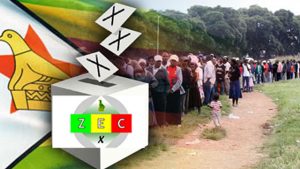The Local Government Election Survey was conducted by the United Mutare Residents and Ratepayers Trust, a residents’ body that advocates for good governance, accountable and transparent municipal services.
Dr Davison Muchadenyika asserted that the survey intended to find out the perceptions of eligible voters on the forthcoming 30 July elections, with a particular focus on local authority elections. Through the research it was realized that local authorities provide critical services such as water, sanitation, health, transport and education.
Another major highlight was the realization that local government elections are overshadowed by presidential elections, leading to voting on the basis of political affiliation rather than competence. The survey revealed that citizens do not really appreciate the fact that elections are an opportunity to change the course of service delivery as they do not fully understand the that role councilors play in city management and service provision, added Dr Muchadenyika.
As part of the survey recommendations, Dr Muchadenyika urged civil society organizations to be major stakeholders within the development agenda and ensure that citizens realize the value of their vote. There is need to raise awareness on the importance of local government elections to the electorate while fully expressing the nexus that exists between councilors and service delivery. Another potential area of collaboration was through dissemination of candidates’ profiles and their credentials and also organizing community assessment meetings to evaluate aspiring councilors.
Mayor Tatenda Nhemarare appreciated that the survey is inclusive and informative not only to UMMRT but to all stakeholders within the development sector. The councilor emphasized on the need for the local authority to work hand in hand with civil society organizations, because they gather crucial information that informs and influences policy formulation.
The launch presented findings of the Local Government Election survey, explained the context in which local government elections in Zimbabwe are conducted, raised awareness and presented expectations of the people towards the elections and lastly explained the process dynamics of elections.
The launch exhibited how CSO’s complement each other’s efforts with regards to social accountability through the engagement of stakeholders working in different thematic areas of programming. The engagement also served as a platform of dialogue where council officials explained council procedures and drew lessons for the future.
Conducting the research was a challenge due to the political climate in Zimbabwe at the time of the study. The political arena was volatile and respondents were not comfortable responding to contentious issues. However, there is optimism that in the future surveys will be more detailed in terms of perceptions of the citizens on issues to do with service delivery.
Plenary Session – by Mr. Nyamaropa (UMRRT)
Mrs. Matsanga, the Director of Simukai raised key questions that really changed the event as a whole. The first question was about the relationship between Central Government and the local authority. Clr Nhemarare, responded citing that indeed the local authorities are becoming obsolete through Central Government interference to the extent that buying a motor vehicle spare wheel has to first go through the State Procurement Board and financially Central Government through the Ministry of Local Government, Public Works and National Housing stripped off the revenue collection powers of council through motor vehicle licensing and transferred them to ZINARA, which is highly problematic because ZINARA falls under a different parent Ministry all together.
The follow up question was then can local authorities be able to venture into Public Private Partnerships, considering that Bulawayo City Council is now building and selling low cost housing to the its citizens. Former City of Mutare Mayor, Clr Brian James, responded without chewing his words, emphasizing that City of Mutare needs to practice transparency and have accountable systems in place that makes its investor friendly and boosts its confidence with the banks to access loans and potential partnership ventures.
Mr. Ngwenya, NANGO Eastern Region Coordinator, asked on how much information gathered by Civil Society Organizations is being used to analyze the Sustainable Development Goals and whether they use this data to inform policy formulation? Dr Muchadenyika responded citing that Central Government has not formulated a framework that reflects to the SDG’s and it is their hope that the new Government sets up one.
Mrs. Mudiwa, Women’s Coalition Zimbabwe, Mutare Chapter Coordinator, raised an important question with regards to why women are underrepresented within council, yet the livelihood issues which emanate from poor service delivery greatly affect them. This question was not well responded to as it seemed to be a matter of political parties internal issues on women empowerment. However this presents a window of opportunity for civil society organizations to capacitate women on the importance of joining politics especially local government.
Conclusion
The local government elections survey report was an empirical research based on factual findings as shown during the discussions. It pointed out that in Zimbabwe; there is low prioritization of local government elections by both the voters themselves and the political parties, to the extent that councilors are not voted on competence but rather on political party affiliation. Devolution remains a major hindrance to the full realization of local government elections. There is need to raise awareness in the electorate especially with help from other civil society organizations on how the relevance of local government elections, because the majority of the services consumed by the electorate services rendered by the local authority. The delegates recommended the need to reconfigure the electoral law in Zimbabwe so that it recognizes the local government elections as different from the presidential one and that the prevailing situation presents itself as a window of opportunity for civil society organizations to raise awareness and assist the voters to make an informed decision based on factual engagement with the aspiring political office candidates than to vote on partisan lines.
Post published in: Featured


